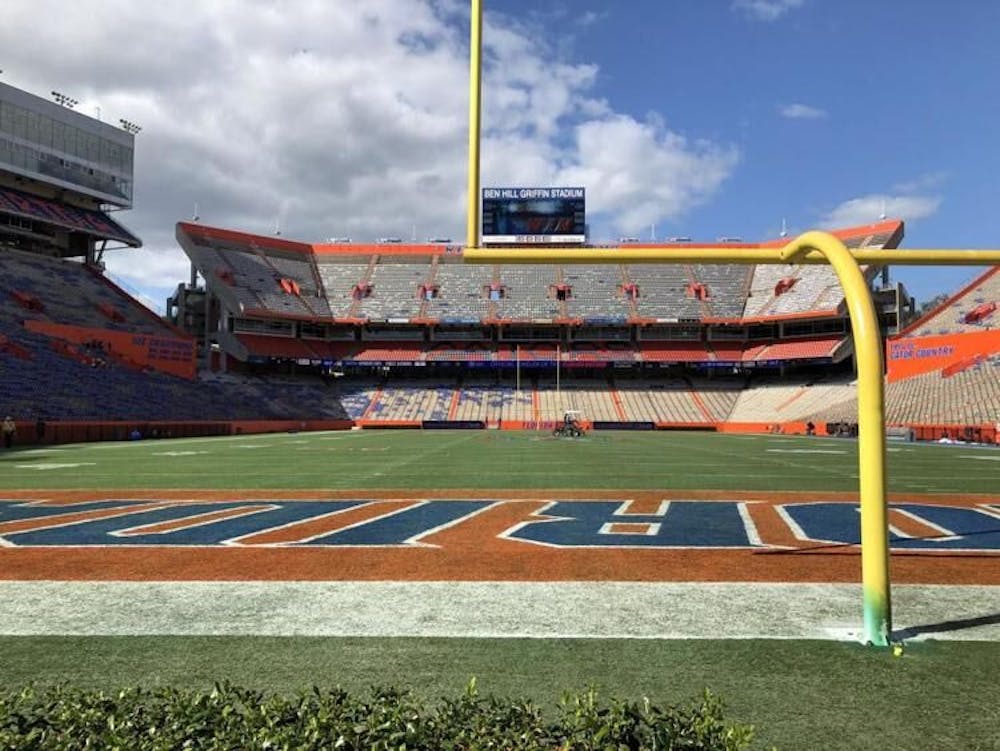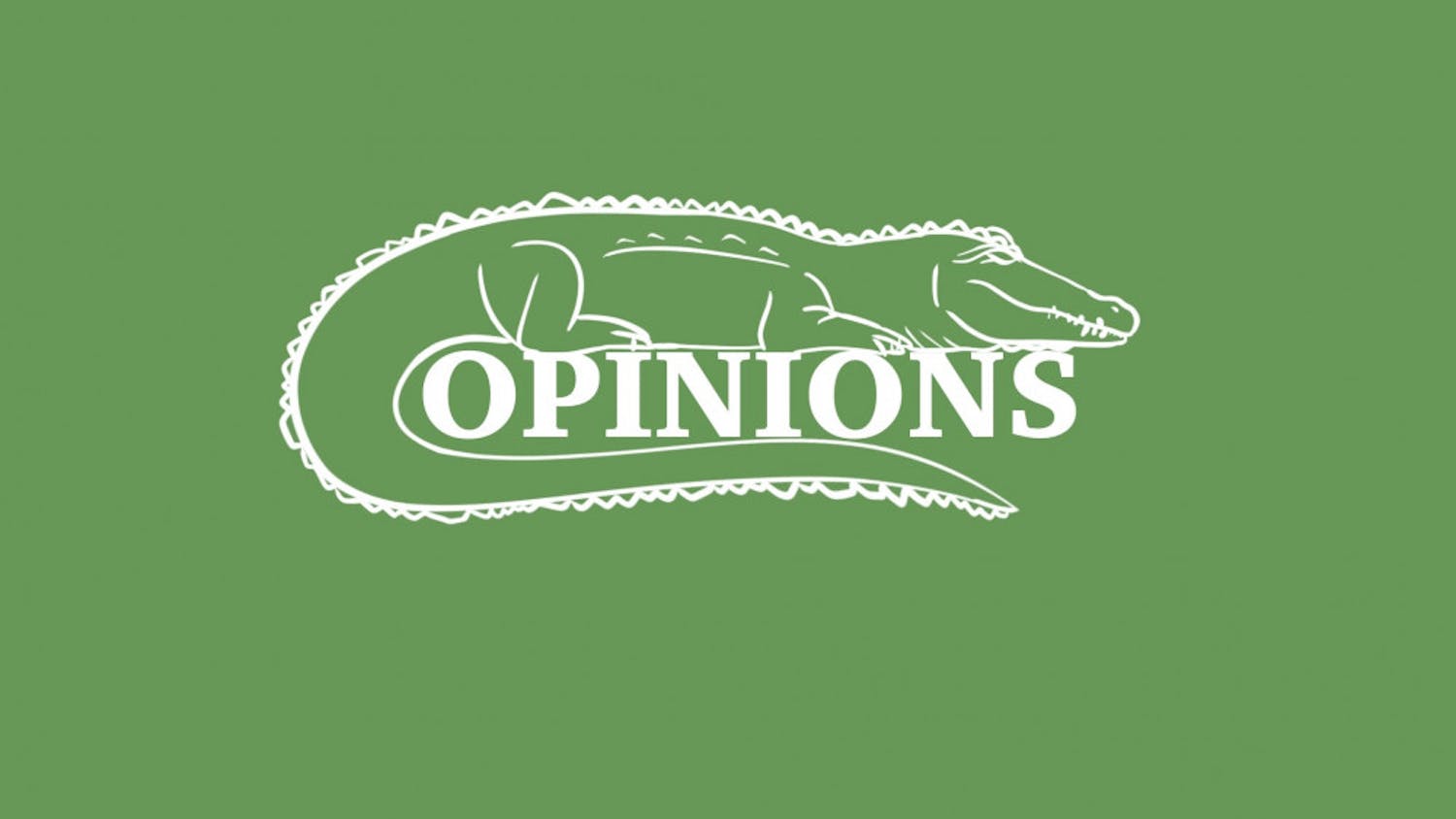With each passing day, the chances of college football being played on the gridiron this fall becomes grimmer and grimmer.
Last Wednesday, UConn became the first FBS school to cancel its football season. That was followed up by the Mid-American Conference (MAC) announcing on Friday that it would be postponing all fall sports, the first NCAA Division I conference to do so. The Mountain West Conference followed suit on Monday
But those verdicts paled in comparison to the bombshell decisions from the Big Ten and Pac-12 on Tuesday, as the conferences came to the same conclusion as the smaller conferences.
Now that two Power 5 conferences have decided pull the plug on their seasons, it could cause a ripple effect and provoke the other three (ACC, Big 12 and SEC) to do the same.
If the SEC does decide to postpone, that could mean there will be no fall sports for the Gators.
Not only would that be disastrous for the city of Gainesville and the university, it would also spell doom for other sports on campus.
This is because almost all sports are subsidized by the money made from the Gators football team.
According to a report from the U.S. Department of Education’s Equity in Athletics program, football at Florida made $84.8 million in revenue during the 2018-19 academic year. That is 59 percent of the total revenue accumulated by the University Athletic Association (UAA) during that span, according to the UAA budget. The next closest sport is men’s basketball at $11.9 million (or eight percent). That means the football program makes over seven times as much as its nearest competitor.
UF is not alone in this phenomenon though. At every SEC school (plus rival Florida State), football is the biggest athletic money maker, and at seven of them (including UF), football accounts for more than half of the income brought into the athletic department.
It’s because of figures like these that when people talk about the cancellation or postponement of the college football season, they are also, by default, speaking about a full postponement of college sports in the fall.
That is the sentiment of Roger Blair Ph.D., a professor in UF’s economics department who specializes in sports economics.
Blair doesn’t see a road map for other fall sports to be played if there is no football.
“All of those sports are supported by football revenues,” he said. “So, a sport like golf or tennis, its admission charges are fairly nominal, and they don’t generate enough money to pay their own way. So, if you don’t have those (football) revenues, you aren’t going to have any sports.”
Blair said the shelving of a football season could cost the UAA as much as $100 million. However, he suspects that the number would be closer to $50 million since the UAA will most likely still get money from Gator Boosters.
According to Blair and statistics from the Department of Education, men’s basketball is the only sport on campus that pays for itself, as its total expenses is $9.3 million and its total revenue is $11.9 million.
A primary reason for why the adjournment of football could lead to a moratorium on all fall sports at UF is because the UAA is a non-profit organization.
Blair said that non-profits aren’t allowed to have a ton of extra money in the bank, meaning the UAA operates on an almost-breakeven basis.
“You can save some money for a rainy day because you need to have money for capital improvements, and you want to be able to save up for that,” Blair said. “But there’s not a big pot you can sit on.”
The data from the Department of Education similarly shows that the amount of cash spent on total expenses and total revenue the UAA makes match up perfectly. This means there is no money left over.
Blair added the UAA at this moment will already lose close to $20 million by not having non-conference games this season. The SEC announced on July 30 that the conference was going to play a 10 game, conference-only schedule in 2020.
“We have a game against let’s say, Southern Mississippi, so they come in and play a home game against us,” he said. “So, we may pay them a million dollars, but at that point, you know 50,000 people are paying 200 bucks a pop, so it’s well worth it, and we make a big profit on that game.”
But the loss of out-of-conference games isn’t the only thing in the Gators current plan that puts Florida at a loss.
UF Athletic Director Scott Stricklin recently said that, to accommodate for social distancing, the capacity at Ben Hill Griffin Stadium could be reduced to “15-20,000 people.” And of course, there remains a possibility that there are no fans in the stands.
Last season, revenue from football ticket sales accounted for $26 million, according to the Gainesville Sun. If the Swamp operates at 20 percent its normal volume this season, profits would be at just over $5 million, meaning the loss of another $20 million.
Blair explained further about season tickets and how much gravy that it brings to the UAA.
“UF sells these tickets at a fairly nominal face value, maybe $40, and if you buy enough season tickets, they cut that a little bit to 37 or 38 a game,” he said. “But, in order to buy that ticket, you have to make a fairly substantial contribution to the UAA. And I don’t think the contribution is refundable. So, for example, if you wanted to take, let’s say, two season tickets, you’d be in a low donor class. And you might have to donate in order to get on the list. You might have to donate, you know, 1,500 dollars.”
Blair continued, “The thing is you could donate that money, and they could run out of season tickets, and you don’t get anything. And you don’t get that money back.”
Blair said the people in the Bull Gator class, the top donor class, have the right to buy up to eight or 10 season tickets, but with donations, they wind up paying close to $200 a ticket.
“If you got 50,000 season ticket holders, and you pay 200 bucks a seat, that’s a substantial amount of money, and that’s for every home game,” he said. “So, the athletic association could take an enormous hit in terms of revenue.”
Additionally, the losses from having no game days in the fall could extend well past the box office.
Blair said that the athletic association probably won’t lose much in the way of licensing revenues but added the losses from having no game days in the fall could extend well past the box office.
“I would imagine that they sell a lot of Florida gear around the football season,” Blair said. “If less people are buying that if there are no games, that is a loss as well.”
Blair did say that the UAA could still make a lot of money, even if there's a season with no fans, from TV contracts and bowl money.
He said the TV money from the SEC’s contracts with CBS and ESPN is split up evenly between the 14 schools in the conference. For the 2018-19 year, the SEC announced it distributed the $624.2 million made that year to each school, meaning UF received a payout of about $44.6 million from the conference.
According to 247Sports, CBS pays $55 million annually to have the first pick to broadcast the best game of the week. ESPN agreed to a $2 billion 15-year contract in 2008 to broadcast the rest of the SEC’s weekly games.
For bowl games, Blair said the SEC divides up the bowl revenue, meaning that UF gets money for each bowl game it goes to, as well as each bowl game any SEC school goes to.
This past season, Forbes wrote that the conference received a $66 million base, with the conference receiving $40 million for Georgia competing in the Sugar Bowl and $27.5 million for Florida playing in the Orange Bowl. In addition, the Gators received a $2.05 million bonus for making it to the bowl game. LSU collected an over $4 million bonus for making it to the National Championship game.
Blair said we shouldn’t expect payouts to be nearly as high this year, though.
“I expect the payouts are going to go down because the bowl organizers, they’ve got revenues from ticket sales,” he said. “However, they are still committed to paying the participating university a certain amount of money in the contracts.”
UAA spokesman Steve McClain didn’t respond about the economic impact after The Alligator’s attempts to contact him.
One idea being thrown around by conferences and athletic directors across the country is the intention of moving the season to the spring. Of course, a lot of this hinges on if it’s safer to play football in the spring, but many are hoping that it will be by that point.
Blair said it’s hard to know what the profit would be like since we have never been in that situation before, but he did say that UF could be in a better situation in the spring than other schools if that was the case.
“You think about a school like the University of Michigan, they have an outdoor stadium, and they are out there in February, and it is really cold, possible temperatures around zero degrees,” he said. “How many fans are going to want to go to those games and sit in that weather?”
He said UF should be better off since it plays in a milder climate, and fans will be more likely to attend games.
Ultimately, Blair said a return for the spring should yield similar earnings to the fall.
He added it helps Florida that all 14 SEC schools are deciding together. The only way Florida could be uniquely hit, in terms of economics and on-field play, is if it goes against the grain of the rest of the SEC.
Regarding winter and spring sports, Blair said it is too soon to say, and a lot of it would be based on what the SEC and other conferences do. He also said COVID-19 plays a major factor, as it still may not be safe to play sports in the spring.
“The situation right now is no different than the situation we had in March when we put everything online,” he said. “If January rolls around and we still don’t have an effective treatment, and we don’t have a vaccine, then you’re not going to have sports in the spring anyways. The situation needs to get better before we have collegiate sports again.”
Follow Noah on Twitter @Noah_ram1. Contact him at nram@alligator.org

Noah is a third year journalism-sports and media student from Palm Beach Gardens, Florida. He has been with The Alligator since Spring 2019 and has covered men’s and women’s tennis, gymnastics and volleyball. When he isn’t on his beat, Noah is usually sadden over his beloved South Florida sports teams, such as the Heat and Dolphins.






